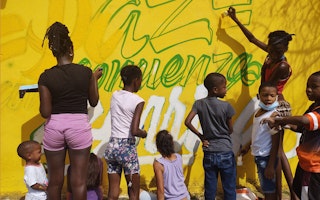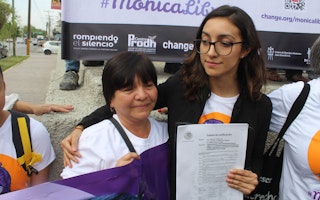At this national summit on criminal justice, over 300 participants from diverse professions addressed the interrelated risk factors that contribute to delinquency and incarceration. The primary goal of the conference was to promote interdisciplinary collaboration in justice reform and review pre- and re-entry efforts.
With more than one in every 100 adults in America in jail or in prison, and with black men in their early 30s more likely to have been in prison than to have graduated from college, the nation can no longer afford—in terms of economics, public safety, or social justice—to ignore the devastating personal and community effects of concentrated poverty, the racial disparity of America's criminal justice system, or the mass institutionalization of young men of color.
Profound connections exist between what is called a "cycle of incarceration" and inadequately addressed social conditions in such areas as education, economic opportunity, housing, child welfare, and health. This cycle of incarceration is fueled by criminal justice policies that emphasize incarceration over human services and community investments that address the individual, family, school, and environmental risk factors.
The progress that policymakers, advocates, and service providers have made by working together to address re-entry policy issues illustrates the effectiveness of the Behind the Cycle approach.
Read more
Homicide Reduction
Q&A: How One Colombian City Is Tackling Violent Crime

Palmira, Colombia, is one of the most violent cities in the world. But a prevention program focusing on youth has reduced crime significantly—and earned it an international peace prize. The city’s mayor on what’s working.
In Remembrance
Lani Guinier’s Overlooked Education Legacy

The late Lani Guinier thought deeply about the intersection between education and criminal justice. Her leadership at Open Society helped pave the way to colleges across the country offering higher education to the incarcerated.
WOMEN'S RIGHTS
Challenging Mexico’s Abusive Preventative Detention System

Mónica Esparza’s case is one of the most notorious cases of extreme gender violence carried out by Mexican authorities. What her story teaches about how to combat the country’s scourge of gender-based violence.